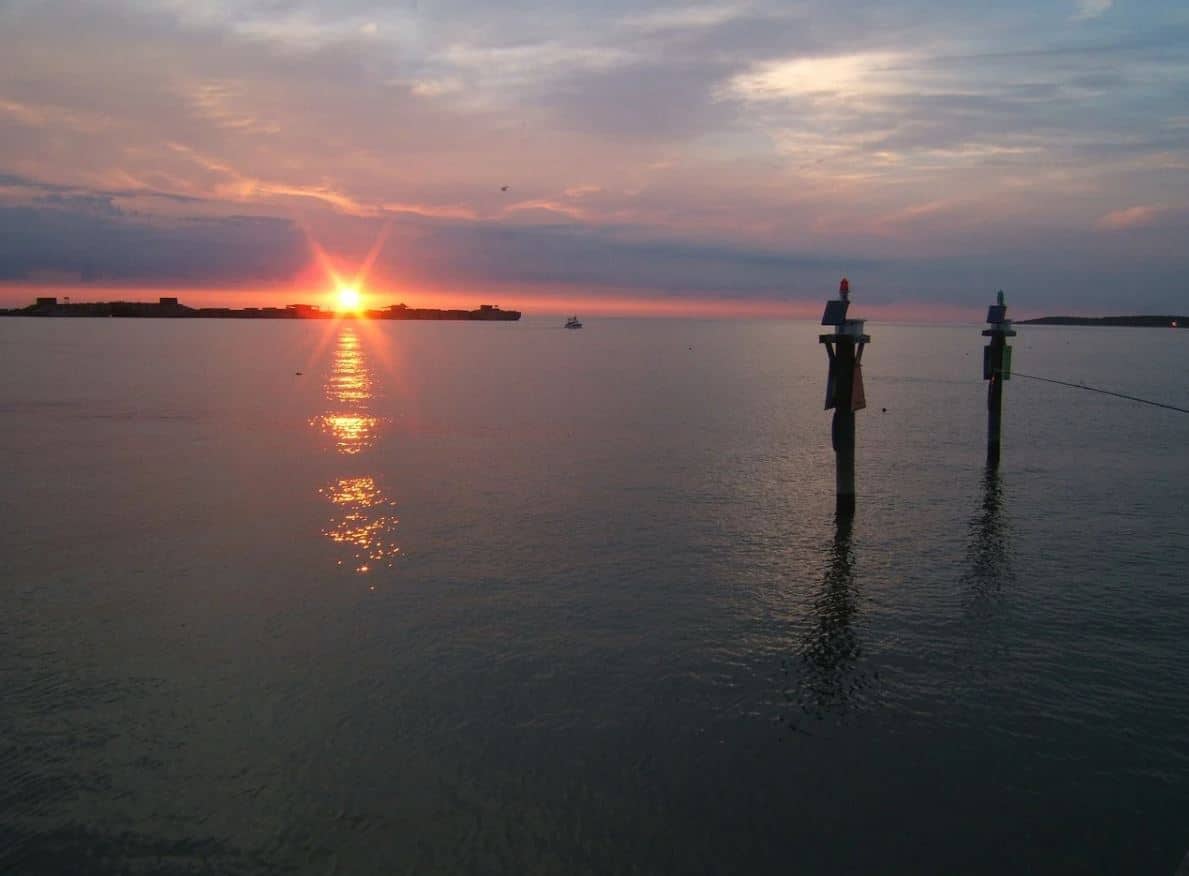State Attorneys General Threaten to Sue EPA Over Chesapeake Bay Cleanup

Three Mid-Atlantic attorneys general are threatening to sue the Environmental Protection Agency for failing to enforce water quality standards to protect the Chesapeake Bay.
They accuse the EPA of ignoring its court-ordered duty to prevent polluters in New York and Pennsylvania from dumping sewage and agricultural runoff into waterways that empty into the Chesapeake.
The result has been algal blooms that block sunlight, reduce oxygen in the water and threaten marine life, according to statements from the attorneys general of Maryland, Virginia and the District of Columbia.
“This is a fight we cannot win without our neighbors and the commitment of the EPA. The EPA has flat out walked away from its responsibility,” Maryland Attorney General Brian E. Frosh (D) said in a statement.
He was joined in his criticisms of the Trump administration’s EPA by Democrats on the Senate Environment and Public Works Committee.
During a hearing Wednesday that touched on the EPA’s response to the coronavirus pandemic, Delaware Senator Tom Carper said the agency has removed “critical protections for public health under the guise of industry relief and economic growth.”
Democrats described the EPA’s actions as part of a pattern for the Trump administration of sacrificing environmental protection for industry growth.
Maryland has spent hundreds of millions of dollars to prevent wastewater runoff only to have its efforts undermined by upstream states unwilling to make the same commitment, Frosh said when he announced he would sue.
A letter of intent the attorneys general sent the EPA last week gives the agency 60 days to respond by explaining how it will address their concerns.
Officials from the EPA and environmental agencies in New York and Pennsylvania called the threat of litigation premature.
EPA Administrator Andrew Wheeler said his agency plans to spend $6 million to reduce wastewater runoff from the six Chesapeake Bay states.
He said in a statement that the funding would help with “continued reduction of nitrogen from agricultural sources, one of the most difficult hurdles to overcome as we strive to make the Bay ever cleaner.”
He accused the three attorneys general of seeking publicity with their threat to sue.
The dispute results from the 2014 Chesapeake Bay Watershed Agreement the EPA reached with the six Chesapeake watershed states. It set acceptable pollution levels intended to eliminate most pollution from the water and ecosystem by 2025.
The EPA required each state and the District of Columbia to submit plans for achieving the pollution reduction goals and measuring their progress.
Reports from the states last year showed that all the watershed states except for New York and Pennsylvania were reaching their targets.
Pennsylvania’s plan puts it within only 75% of its pollution reduction goal. New York’s plan means it can meet only 64% of its reduction target.
Nevertheless, the EPA is not requiring Pennsylvania or New York to prepare new plans to achieve the watershed agreement’s goals, according to the Maryland, Virginia and District of Columbia attorneys general.
“As the administrator of the Chesapeake Bay Agreement, the EPA must treat each of the partners equally and make sure every state is pulling its weight and upholding its portion of the agreement, but instead, the Trump EPA simply rubber-stamped plans that are plainly inadequate,” Virginia Attorney General Herring said in a statement.
























